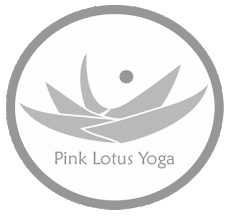In Part I of this series, I stated that yoga, the most economical of wellness systems ever created, can help you through economic tough times. In this article, I will further this concept by looking to the words of two great yoga masters on the topic of yoga's intent and import, and then I will move to introduce three general yogic disciplines that strengthen our personal wellness economies in a time when the larger economy continues to falter.
In the world of yoga, there exists an important precept espoused by yogis of many backgrounds, and it is that yoga, the 5,000 plus-year-old practice of mind-body connection, was created not for wealthy or the privileged being but for the common householder, or everyday person. Right out of the gate, in other words, we see in yoga's roots and mission a link between itself and what is common.
A great modern yoga master, B.K.S. Iyengar, precisely defines the common, everyday life: "The life of a householder is difficult, and it always has been. Most of us encounter hardship and suffering, and many are plagued by physical and emotional pain, stress, sadness, loneliness, and anxiety. While we often think of these as the problems caused by the demands of modern life, human life has always had the same hardships and the same challenges-making a living, raising a family, and finding meaning and purpose."
Iyengar's words ring true in general, and in light of the current recession, his words might resonate quite deeply for some. They do for me. Further, as our global situation will likely worsen in 2009, common householders the world round could very well be living out the details of Iyengar's description. In what appears to be deepening global hard times for the billions of common householders walking this planet, I see, in fact, the possibility of an economic-induced, worldwide plague of suffering. It's no bad formula I am employ here, to say that when the economy is weak, the human condition has a bigger chance to be weak, too.
That sounds, admittedly, dire, and as though I am a pessimist. But I am not, so please read on.
Just as Iyengar and countless yogis throughout history pinpoint the cause and conditions of human suffering, so do they point to a solution. They, of course, point to the power of a yoga practice.
Another of yoga's great modern masters, Yogia Bhajan, writes about the power of his style of yoga on the everyday person: "It is [the] yoga which allows an ordinary person to live in this world, experience of the ecstasy of consciousness, then use this consciousness to serve humanity." Equally succinctly, Iyengar sheds light on yoga's benefits: "Yoga, as it was understood by its sages, is designed to satisfy all human needs in a comprehensive, seamless whole...Yoga allows you to rediscover a sense of wholeness in your life where you do not feel like you are constantly trying to fit the broken pieces together."
Iyengar and Bhajan remind us that yoga was created for and benefits the everyday person struggling to have a good life. Here are just a few reasons I believe why yoga helps in the struggle:
• Yoga has nearly illimitable breadth and depth. It consists of eight major limbs of practice and a history so deep and rich that it is not easy to discern one major branch or style from another. One can take a lifelong yoga adventure completely on one's terms. Once you find yoga, there is no need for anything else. (How economical is THAT?)
• Yoga brings documented fast results. Students report positive change after even one class.
• Yoga contains no repetitive, impacting body movements: repetitive movement (running, swimming) are good aerobic exercises but do not utilize the entire body as efficiently as yoga does. Impacting movement (e.g., running, step aerobics) is in fact bad for the body long-term.
• For people who are time-crunched, yoga is a perfect system since it is built on a sequence of poses and brief exercises, so it's easy and creative to build one's own sequence. Since five minutes of yoga a day can benefit us greatly, it is the ultimate time-smart wellness system.
In conclusion, there are so many yoga practices and exercises to help us everyday people 'fit the broken pieces' of our lives together that I conclude, quite easily, this: Yoga can help anyone through anything anytime.
In the next article, I will begin discussing three limbs of yoga that contain highly economical and effective exercises particularly geared for those who are struggling to start and maintain a solid practice during tough times. These disciplines are 1)exercise with breath awareness; 2) mind work; 3) and diet.
Subscribe to:
Post Comments (Atom)

No comments:
Post a Comment